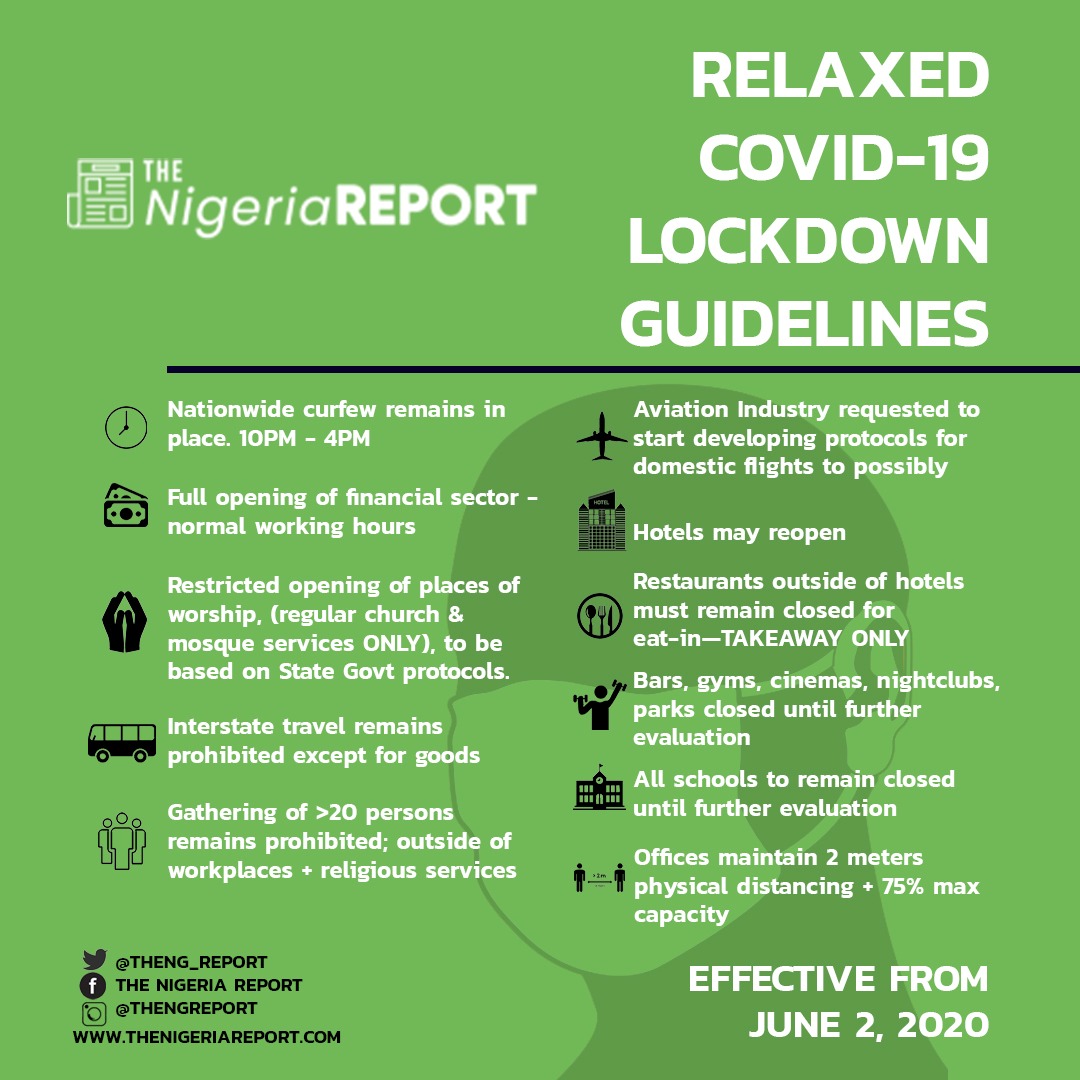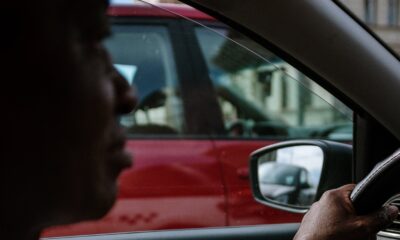Features
For Many Impoverished Nigerians The Lockdown Guidelines Are Death Sentences
How do you tell the average Nigerian who sells okrika at Oshodi market to stock-up? What of that alabaru? How do you intend to provide for him/her?
The failure of the government to provide adequately (or even provide at all) for the less-financially-privileged citizens is the major reason why the lockdown did not work in Nigeria.
Even with 11,516 COVID-19 cases in Nigeria, spread across all 36 states, the Nigerian government has eased the lockdown and movement restrictions in the country. Businesses have reopened, movements are allowed – except from 10 pm to 4 am, churches and mosques are set to reopen and things are about to go back to (almost) normal. However, there are set guidelines to be followed by Nigerians.

In April, the Federal Government of Nigeria approved a phased and gradual easing of lockdown measures in FCT, Lagos and Ogun state effective from Monday, May 4, 2020. Measures, including a nationwide 8 pm to 6 am curfew, compulsory wearing of facemasks, and a ban on “non-essential” travel between different regions.
Before this, the Federal Government of Nigeria had earlier declared a compulsory shelter-in-place for the Nigerian citizens. This ‘lockdown’ included strict restrictions of movement, closure of businesses that were not essential (food, drugs, water, healthcare, security), total ban on religious activities, closure of schools until further notice and other measures.
Lockdown? Yinmu
The lockdown order was just a mere official statement. In many parts of Nigeria, especially in places like Lagos, people flouted the order. People came out, en masse, to workout on the roads, some played football on fields, some organised mini parties, some people decided it was the best time to visit friends and family. People got bored of staying at home all day and decided that going out on the streets was the best decision.
But having fun and being bored was not the only reason why people decided to leave their homes. For some, life happened to them and they had no choice but to defy the shelter-in-place order.
For the joggers and party-goers, one can agree that it is because they are well-fed (or at least, fed), that’s why they can easily treat the lockdown like a holiday and do pushups on the road. Some others don’t have that luxury. These are people who rely heavily on daily income. They are people who cannot afford to feed, people who do not have money to stock up the fridge (many don’t have a fridge to start with).
These people are the dishwashers in that Mama Put restaurant who collect 200 Naira daily as their pay. They are the alabaru (load carriers) in Mile 12 who get their pay when they help people carry their loads in the market. They are the wheelbarrow pushers, those boys in Ijora who get paid when they bring passengers into the bus. They are women who sell matches in the market, the orange and popcorn hawkers…
These people don’t have the financial capability to sit at home during the lockdown – except they wish to starve to death. That is why after a few days, people were back on the streets, claiming that they’ll rather die of Coronavirus (which they were not entirely convinced was in Nigeria anyway) than to die of hunger.
People closed their shops and stylishly stayed in front, when you pass by, they will whisper into your ears to let you know that they are around and are willing to sell. Hawkers hawked while watching out for law enforcement agents. Policemen used that opportunity to hustle; they collected bribes from motorists and sellers and let them pass in peace.
Are these people stubborn or they had no choice?
The idiom, ‘make hay while the sun shines’ rings true when you think of how much COVID-19 has affected Nigeria. Our inability to put good systems in place came back to bite our bums. The Nigerian government advised Nigerians to stock up (for those who could afford to) so they won’t go hungry during the lockdown. But there’s no power supply! How do you fill up your fridge when it’ll eventually get rotten because of poor electricity?
How do you tell the average Nigerian who sells okrika at Oshodi market to stock-up? What of that alabaru? How do you intend to provide for him/her?
The failure of the government to provide adequately (or even provide at all) for the less-financially-privileged citizens is the major reason why the lockdown did not work in Nigeria.
No food, no water, no electricity, poor and expensive internet services, no single provision made. So people should sit and home and do what?
If provisions were made for people – food, water, security, clothing, shelter, the government would have the balls to enforce the lockdown and punish defaulters. It’ll be a case of “I have provided everything for you, what else do you want?”
Social welfare in Nigeria? Zero!
Everyday, the Nigerian government spends N679m in feeding school kids, yet 2 million children in Nigeria suffer from severe acute malnutrition (SAM). Nigeria has the second highest burden of stunted children in the world, with a national prevalence rate of 32 percent of children under five. 5 in 10 children under five are malnourished (stunted, wasted or overweight). 3 in 10 children aged 6 to 23 months live on poor diets.
So how effective is this school feeding? While many people believe that the government is telling lies just to embezzle more funds, the truth remains that a lack of accountability and a lack of a working system that works is one of our biggest problems. For instance, Jane (not real name) was tasked with cooking the food meant for a particular school, but Jane has been hoarding bags of rice and now, she has seven bags of rice in her store. This is the food meant for the school children. Jane can easily pull this off because the Nigerian government is fond of not effectively monitoring how tasks are being done or how money is being spent.
This also applies to the welfare package the government disbursed to poor people in Nigeria. A particular LGA chairman in Ikorodu claimed that the foodstuff – that he had kept in his office – was stolen by hoodlums. Till today, nobody in the LGA received anything. How will the lockdown be effective if the most basic thing like food does not get into the hands of those who need them the most? At the end of the day, people will be forced to leave their homes in search of food, because you can’t close down people’s source(s) of income, not provide for them, and still expect them to sit at home.
Many Nigerians don’t care if the government spends 100 billion Naira or 1 million naira on feeding or on welfare, all they care about is that this food and other welfare packages get to them. Shikena!
With the steadily-rising number of COVID-19 cases in Nigeria, there might be a need to reinforce the shelter-in-place order. It is important that this time around, the government will do right by the people.























